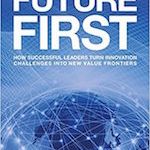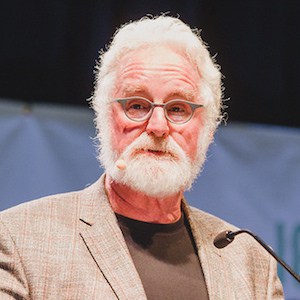Weekly Roundup: Hippies vs. Capitalists at SOCAP, Data (and Honors) for Social Entrepreneurs and a ‘What’ for WHO
I’ll be honest: Even at SOCAP – one of the most consistently interesting and well-organized events on the social business calendar – the panels start to blur together after a certain point. There are a wide variety of issues under discussion, but there are only so many ways panelists can approach them, and some overlap is inevitable.
But a panel on Thursday stood out, for the topics under discussion, the format – and perhaps for what it revealed about the impact investing and social business sectors more broadly. Called “Getting Real Around the Tensions of Impact,” it was framed around an interesting contradiction: In its efforts to go mainstream, the industry has gone to great lengths to emphasize that it can deliver positive impact without conceding financial returns. But does that approach miss the point? Does it reinforce the existing market expectations for growth and short-term profit that have unleashed capitalism’s more destructive tendencies in the first place?
To explore that question, the four panelists were asked a series of provocative questions, and asked to hold up signs saying “agree” or “disagree” – then to explain their answers. What transpired certainly highlighted the tensions inherent to social business – but it didn’t do much to resolve them.
For instance, when asked whether “impact investing is inherently fair and just,” all four disagreed. As ImpactAssets’ Jed Emerson put it, most impact investing products are geared toward making money, not transferring equity to communities. And all four panelists agreed with the statement that even if the sector makes some improvements, the world will not be better off unless wealth structures change in the process. The discussion seemed perfectly aligned with the “share the wealth” vibe that characterizes events like SOCAP.
Yet all four panelists also agreed with the following two statements: “We want impact investing to deliver market returns to attract institutional capital” and “Impact investing will outperform traditional investing.” And when asked if there should be a cap on returns on equity in impact investing, all four panelists disagreed. In fact, the topic seemed to rile up Emerson – he took the occasion to lob a few broadsides at Muhammad Yunus’ belief that social business should deliberately limit its financial returns. Calling it “hugely simpleminded,” he said such a “dogmatic approach to what is impact and what is righteous” would inhibit innovation. The sector’s organizing principle was starting to sound more like “share the wealth … with investors.”
The dynamic was best revealed by this awkward question: Since the impact sector often addresses social problems exacerbated by an eroding tax base, should impact investors avoid efforts to minimize their own tax burdens? In the rather chaotic discussion that followed, it was unclear where most panelists stood – but there clearly was no appetite for paying more to the taxman.
These are sensitive questions about complex issues, and I don’t mean to put these panelists on the spot. They discussed them frankly and honestly, and they should be credited for having the courage to do so publicly (though halfway through the panel, one of them plaintively – and certainly belatedly – asked that there be “no tweeting.”) But it was striking to see how quickly SOCAP’s “hippie vibe,” for lack of a better term, went out the window when the discussion shifted from the need for “the world” to “change its wealth structures” to the suggestion that impact investors themselves might have to accept less money in the process.
Maybe the voices aiming to mainstream social business are right – maybe impact investors and entrepreneurs can make as much money as anyone else, while delivering social impact. Certainly, that’s the case they’ll have to make to the broader market if they want to truly scale up. But it seems a bit too convenient to buy into the assumption that all this can be had without any financial sacrifice, that there’s no inherent trade-off between the amount of impact a business can make and the amount of profits its owners and investors keep for themselves.
As for the question at the heart of this panel (and perhaps of the entire social business movement): Can linking hippie ideals to the capitalist system really transform the world? It seems equally likely that the ones being transformed will be the hippies.
– James Militzer
Data, and lots of it, about social entrepreneurs
The U.S. is the best place in the world to be a social entrepreneur and Turkey’s the worst, according to a fascinating Thomson Reuters Foundation poll of nearly 900 experts.
The poll includes the world’s 45 biggest economies and was conducted in partnership with Deutsche Bank, the Global Social Entrepreneurship Network and UnLtd.
Others atop the list are Canada, United Kingdom, Singapore and Israel. Rounding out the bottom five are Japan, Brazil, Venezuela and Ireland.
More interesting findings:
- South Korea and Singapore top the list of countries where government policy supports social entrepreneurs.
- Santiago and Nairobi are “emerging hot spots for business leaders seeking to drive social change,” alongside more obvious hubs like London, Berlin and Hong Kong. Then there’s this, in a report sidebar by Maria A. May, BRAC Social Innovation Lab: “If you are the kind of social entrepreneur that likes to drink opportunity out of a fire hose, come to Bangladesh!”
- India is among the countries where it’s easiest for social entrepreneurs to access investment, trailing Canada, Singapore, the U.S. and Belgium.
- Among countries where women are most actively leading social enterprises, the Philippines ranks first, and five more in the top 10 are also in Asia: Malaysia, China, Hong Kong, Indonesia and Thailand.
If you’re interested in social enterprise and how it’s changing the world – and we know you are – you’ll want to carve out an hour or two to peruse this beautifully presented report.
– Kyle Poplin
PATH continuing to blaze a trail
Every year, The Tech Awards honor laureates who are using technological innovation to solve the world’s biggest challenges. In advance of this year’s gala, set for Nov. 17, they’re recognizing the best of the best – seven organizations deemed to be “the most effective social entrepreneurs on the planet.” (Note: NextBillion was a media partner for The Tech Awards annual gala last year.).
The “magnificent – and magnanimous – seven,” as they’re calling them, will be given special recognition at the 16th annual gala. Included are:
Laureate Impact Award: PATH (a laureate in 2003, 2007 and 2009)
Intel Environment Award: Source International (2014 laureate)
Microsoft Education Award: Equal Access (2003 laureate)
PayPal Equality Award: Souktel (2010 laureate)
Katherine M. Swanson Young Innovator Award: Angaza (2012 laureate)
Sobrato Organization Economic Development Award: IDE-India (2004 and 2010 laureate)
Health Award: D-Rev (2013 laureate)
Here’s how you can buy tickets to the event at the San Jose McEnery Convention Center.
– Kyle Poplin
A healthy proposition for WHO
From the world of common sense comes a plea for the World Health Organization to outsource some of its key activities.
The call for “fundamental and extensive reform” in the British Medical Journal, reported in the Guardian, comes from global health leaders worried that WHO didn’t learn enough from the Ebola crisis and, unless it reinvents itself, risks losing funding.
By way of example, Professor Joel Negin of the University of Sydney writes that WHO has been slow to respond to an outbreak of drug-resistant tuberculosis in Papua New Guinea: “Some on the ground are saying this is like Ebola with wings, and we have a potentially cavalier attitude from the WHO.”
The global health leaders recommend outsourcing to organizations such as the Bill and Melinda Gates Foundation, the Global Fund for Aids, TB and Malaria, and Médecins Sans Frontières who “are already leading the way” in global health, and add that WHO should focus on “core activities where it has comparative advantage.”
The vision for reform, at its core, is for various organizations to do what they do best. That sounds like a very healthy proposition.
– Kyle Poplin
IN CASE YOU MISSED IT … THIS WEEK ON NEXTBILLION
Five Imperatives to Help Address the Challenges of Sustainable Rural Economic Development
Implementing Market Systems Programs in Fragile Contexts
Homepage photo credit: Aaron Sievers, via Flickr.
- Categories
- Investing, Social Enterprise



